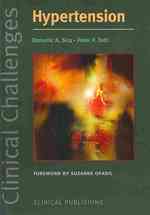Full Description
Starting from the premise that learning and career development happen naturally and optimally through collaboration and social relationships, this book challenges the dominant employability skills discourse by exploring socially connected and networked perspectives to learning and teaching in higher education.
With 10 empirical case studies of educational practice, chapters investigate the development of learner capabilities, teaching approaches, and institutional strategies to foster lifelong graduate employability through social connectedness. The book argues that higher education institutions have placed themselves at a disadvantage in learning and teaching by limiting and prescribing interactions that prevent multidisciplinary and cross-functional collaboration, and embeddedness into wider industry and community networks. The book offers new strategies and pedagogic approaches that can support learners to build, maintain and make the most of social connections for purposeful participation in life and work. It also demonstrates how universities can forge effective partnerships internally as well as with industry and community partners to ensure the relevance and vibrancy of university learning.
Offering an alternative perspective on learning and teaching in higher education with international relevance, this book is a practical resource that can be used by educators to inform teaching practice and curriculum development. It will be essential for university leadership, as well as academics and researchers focused on education policy and university management.
Contents
Contents:
1. A Connected Approach to Learning in Higher Education
Ruth Bridgstock and Neil Tippett
PART I CONNECTEDNESS CAPABILITIES
2. Connectedness Capabilities
Ruth Bridgstock and Neil Tippett
3. Students' Professional Digital Identities
Mandy Lupton, Kay Oddone and Neal Dreamson
4. Connectedness Capabilities of Non-Traditional Students: Pedagogical implications
Margarietha J. de Villiers Scheepers, Joanna McIntyre, Gail Crimmins and Peter English
5. Social Connectedness and Graduate Employability: Exploring the Professional Networks of Graduates from Business and Creative Industries
Ruth Bridgstock, Denise Jackson, Kate Lloyd and Matalena Tofa
PART II CONNECTEDNESS PEDAGOGIES
6. Connectedness Pedagogies
Ruth Bridgstock and Neil Tippett
7. Connectedness Learning in the Life Sciences: LinkedIn as an assessment task for employability and career exploration
Jason L. Brown, Michael Healy, Louise Lexis and Brianna L. Julien
8. Indigenous Perspectives on Connected and Networked Learning: Towards holistic connectedness pedagogies
Peter Radoll, Peter Copeman, Scott Heyes, Mary Walsh, Sam Byrnand, Brian Egloff with Lance Bartram, Kerani Cameron, Fehin Coffey, Sarah Falusi, Victoria Hales, Robert Liesagang, David Jolley, Catherine Lampe, Natalie Lutan, Joshua Naivalurua, Chilli Platt, Thomas Rigon and Caroline Wallace. Project Elder: Aunty Roslyn Brown, University of Canberra
9. The Capstone Experience: Five principles for a connected curriculum
Mitch Goodwin, Kay Are, Michael 'Maxx' Schmit, Bryonny Goodwin-Hawkins, Wajeehah Aayeshah and Elizabeth Lakey
10. Curriculum Transformation for Graduate Connectedness and Employability: Perspectives from the University of Wollongong
Simon Bedford and Kenton Bell
PART III INSTITUTIONAL ENABLING STRATEGIES
11. Institutional Enabling Strategies
Ruth Bridgstock and Neil Tippett
12. Developing a Connected Learning Community for Social Entrepreneurship through University and High School Collaboration
Jeremy Kerr, Natalie Wright and Timothy Barraud
13. Integrating Connectedness Learning into Institutional Program Review Processes in an Australian Regional University
Sara Hammer, Peter Ayriss, Marita Basson, Beata Batorowicz, Jo Devine, Melissa Forbes, Alexander Kist, Tessa McCredie, Amanda McCubbin
and Bill Wade
14. The Connected University: Connectedness learning across a lifetime
Kirsty Kitto, Julieanne Cutrupi, Mark Philips, Gabrielle Gardiner, Moein Ghodrati and Simon Buckingham Shum
15. Future Connections: Implications for connectedness strategy, pedagogy and capability in Higher Education
Ruth Bridgstock and Neil Tippett
Index








